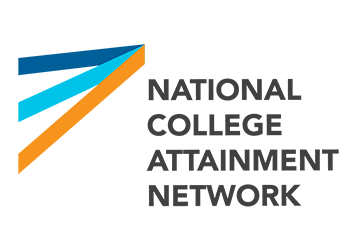 The National College Attainment Network (NCAN) recently announced that FCAN is among 15 state-level organizations that will help inform and advance college and career readiness policies and practices through a new grant funded by The Bill & Melinda Gates Foundation.
The National College Attainment Network (NCAN) recently announced that FCAN is among 15 state-level organizations that will help inform and advance college and career readiness policies and practices through a new grant funded by The Bill & Melinda Gates Foundation.
Through this effort — dubbed the “Postsecondary Pathways Project” — NCAN will also develop, refine, and advance a student-centered support model, as well as identify and promote high-leverage activities states can take on if they want to improve their students’ educational attainment levels.
In addition to FCAN, the 15 states and partner organizations — each of which is a sub-grantee — include:
- Alabama: Alabama Possible
- Arizona: Education Forward Arizona
- Idaho: Idaho State Board of Education
- Illinois: Illinois Student Assistance Commission
- Kentucky: Kentucky Higher Education Assistance Authority
- Michigan: Michigan College Access Network
- Mississippi: Woodward Hines Education Foundation
- Missouri: Missouri College and Career Attainment Network
- Montana: Montana College Attainment Network
- New Mexico: New Mexico Educational Assistance Foundation
- Oregon: Oregon Office of Student Access and Completion
- Rhode Island: Onward We Learn
- Texas: TxCAN
- Washington: Washington Student Achievement Council
“FCAN is honored to receive this grant, and we look forward to partnering with NCAN and the other participating states to develop best practices in making college and career readiness more equitable, accessible, and success-focused,” said Charleita M. Richardson, FCAN’s Executive Director.
Alongside these partners, NCAN will deliver training and professional development opportunities to K-12 and nonprofit college and career readiness practitioners. That includes facilitating a fellows program to develop a cohort of stellar school personnel to lead the college and career readiness work in their district. Anthony Cook, Coordinator of College and Career Counseling for the School District of Osceola County, was selected as a Florida fellow.
The three-year grant will also allow Gates to engage in the following activities while working alongside NCAN members conducting their own efforts statewide and influencing state-level practices:
- Identifying and documenting state-level progress in advancing effective college and career readiness practices, with an emphasis on data sharing and usage
- Curating, producing, and promoting new and existing K-12 resources and channeling them to states, districts, community-based organizations, and partnerships that deliver supports to students
- Developing a student support model around what all students should experience, see, and feel through the postsecondary advising process and connect those elements to their postsecondary outcomes
Overall, these efforts will coordinate to identify high-leverage policies and practices, create partnerships with the organizations that can promote and implement them, and increase the number of schools providing, and students accessing, effective, affordable advising solutions.
Visit NCAN’s blog to learn more about the Postsecondary Pathways Project.
RELATED ARTICLES:
NCAN Guest Blog: How to Use Fit and Match to Increase Student Success
NCAN Guest Blog: Summer is the time to build strong pathways between K-12 and higher ed
